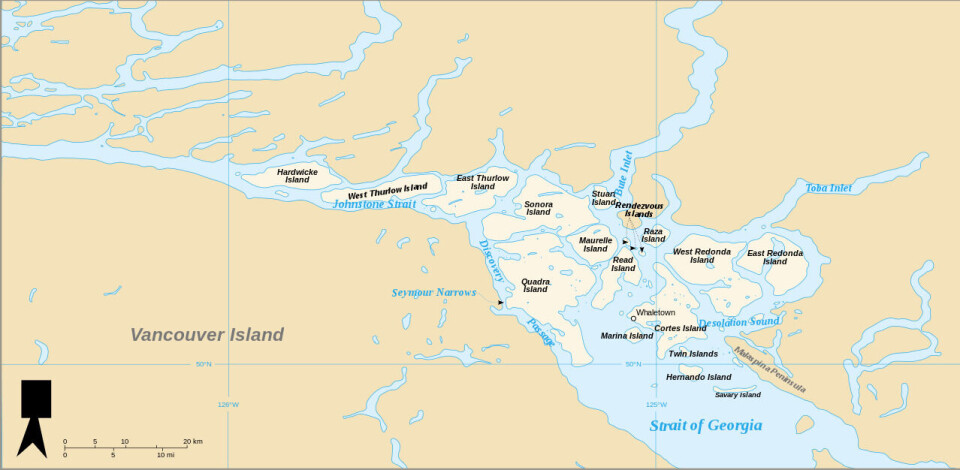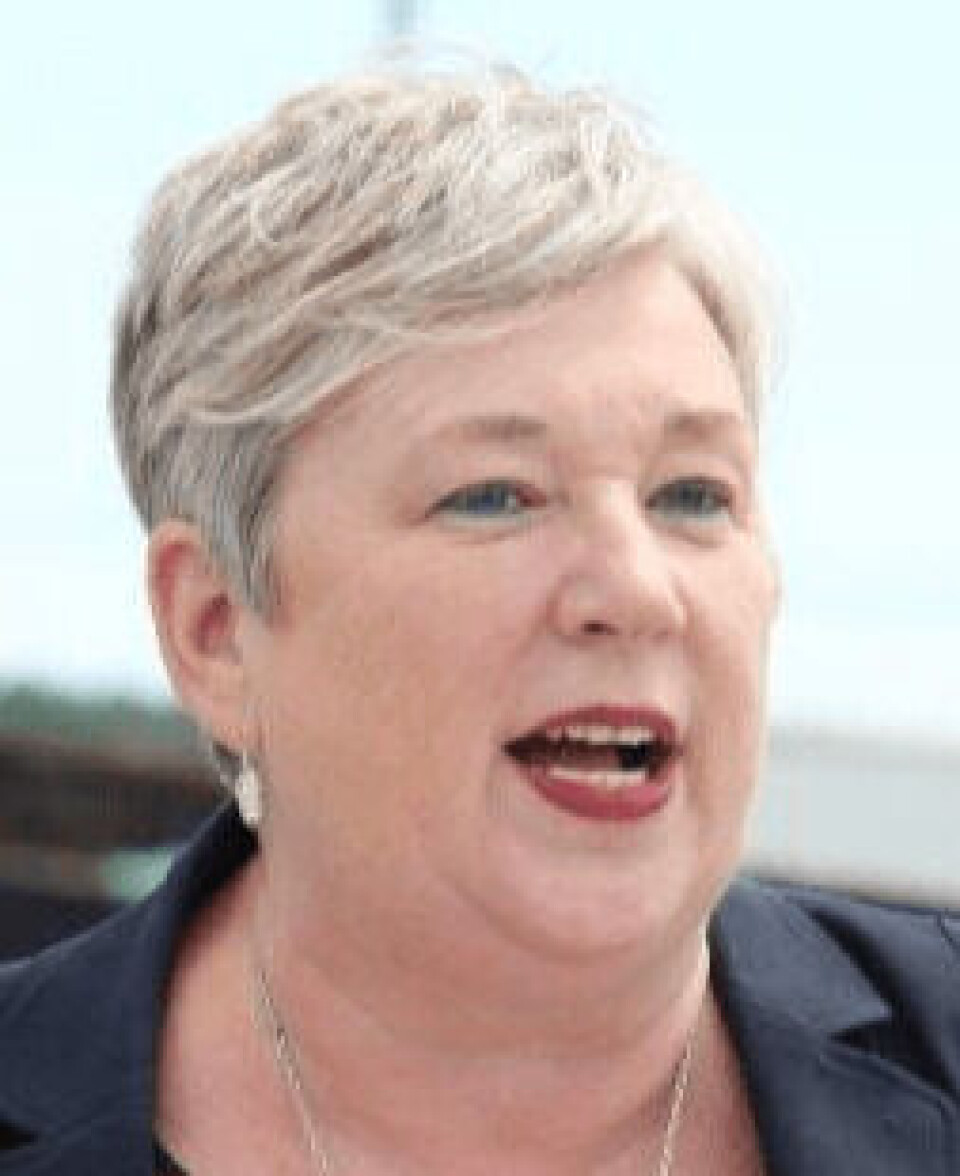
First Nations hold key to future of BC salmon farms in Discovery Islands
Salmon farmers in British Columbia are facing the possibility of a new wave of evictions from waters in First Nations territories, following the decision to close 17 farms in the Broughton Archipelago by 2023.
The Canadian government last night announced that it is to begin consultations with seven First Nations about the future of salmon farms in the Discovery Islands, which lie between the east coast of Vancouver Island and the mainland of British Columbia.
It said Fisheries and Oceans Canada (DFO) would carry out the consultations, and the information exchanged would inform the government’s decision on whether to renew aquaculture licences in the area.
Renewals due in December
DFO has been renewing aquaculture licences in the Discovery on an annual basis. The current licences are set to expire in December.
The government has stressed that scientific assessments have shown salmon farms pose a “minimal” risk to native sockeye salmon, but it appears that political considerations might have a greater bearing on whether the farms can remain.

In a press release last night, Canadian fisheries minister Bernadette Jordan said the government recognised “the concerns raised by partners that these particular farms may not be the best fit for this location nor for adjacent communities”.
She added: “We will be consulting with each First Nation within the Discovery Islands area, and the information and views they provide will inform my decision on whether or not to renew licences for these farms this December, and in the future.”
Nine risk assessments
Starting immediately, the DFO will begin consultations with the Holmalco, Klahoose, Komoks, Kwiakah, Tla'amin, We Wai Kai (Cape Mudge) and Wei Wai Kum (Campbell River) First Nations about the aquaculture sites in the Discovery Islands.
In its press release, the government said that strong, collaborative relationships with Indigenous peoples regarding the management of the marine environment will lead to better outcomes for their communities and help support healthy oceans.
It pointed out that the DFO had completed nine peer-reviewed, scientific risk assessments to determine the impact of interactions between wild Pacific salmon and pathogens from salmon farms, which concluded that the transfer of these pathogens – including virus and bacteria native to the Pacific Northwest - posed a minimal risk to abundance and diversity of migrating Fraser River sockeye salmon in the area.
The government also referred to the ruling Liberal Party’s election pledge to “transition” salmon farming in BC away from open net pens.
“Moving forward, the department will continue to take a collaborative and area-based approach to aquaculture management and decision making,” the government stated.
“An area-based approach takes into consideration Indigenous knowledge, social, economic, geographic, and environmental factors. It also increases collaboration among parties as the government advances its commitment to develop a responsible plan to transition marine net-pen salmon farming in coastal British Columbia waters.
Pragmatic approach
“The area-based approach to aquaculture will see the department work closely with the Province of British Columbia, First Nations communities, industry, and other stakeholders to develop a comprehensive and pragmatic approach to aquaculture while critical work continues in key areas such as stock assessment, research, habitat protection, restoration and enhancement.
“Wild Pacific salmon face a multitude of stressors, and the government remains fully committed to their protection. Pacific salmon are culturally significant to Indigenous peoples and important to the livelihood of coastal communities. Healthy salmon stocks are also vital to the ecosystem, the economy, and to the social fabric of British Columbia’s coastal communities – which is why the government has a robust regulatory program for the management of aquaculture in British Columbia.”
Sound science
Twelve of the sites in the Discovery Islands are leased by Mowi Canada West, three by Cermaq Canada and one by Grieg Seafood BC. Mowi referred press enquiries to the BC Salmon Farmers’ Association (BCSFA).
In a statement on its website, the BCSFA said: “DFO has carried out nine scientifically peer-reviewed risk assessments to determine the impact of interactions between wild Pacific salmon and farmed salmon in responding to the recommendations of the Cohen Commission (an inquiry into the decline of sockeye salmon in the Fraser River).
“This work clearly shows that ocean-based salmon farms pose no more than a minimal risk of serious harm to wild salmon populations in the Discovery Islands. Sound science will support the stability and shared values our industry is bringing to the coast today and into the future.
“Salmon farming is part of the economic fabric of BC. Working closely and openly with Indigenous Peoples is how salmon farmers in BC are working to create a shared future of economic opportunity and environmental stewardship. We look forward to participating fully in the upcoming dialogue announced today by the federal government.”
Although some First Nations are opposed to salmon farming in their traditional territories, others have long-standing agreements with companies such as Mowi.




















































